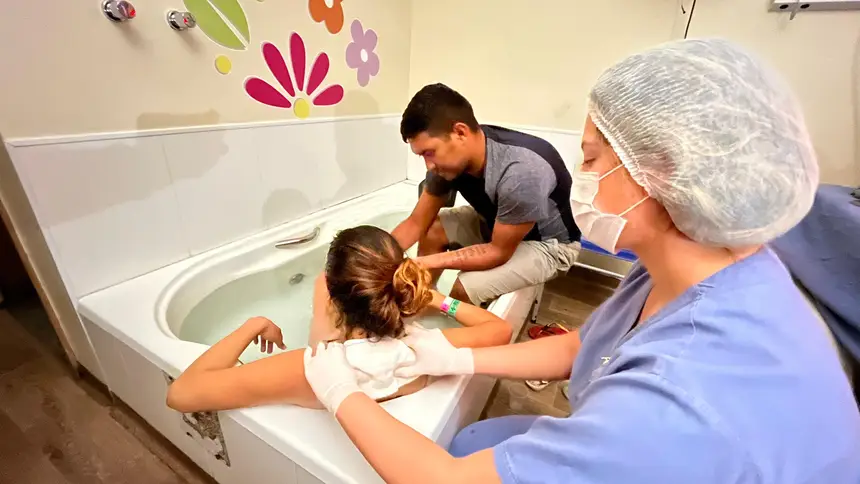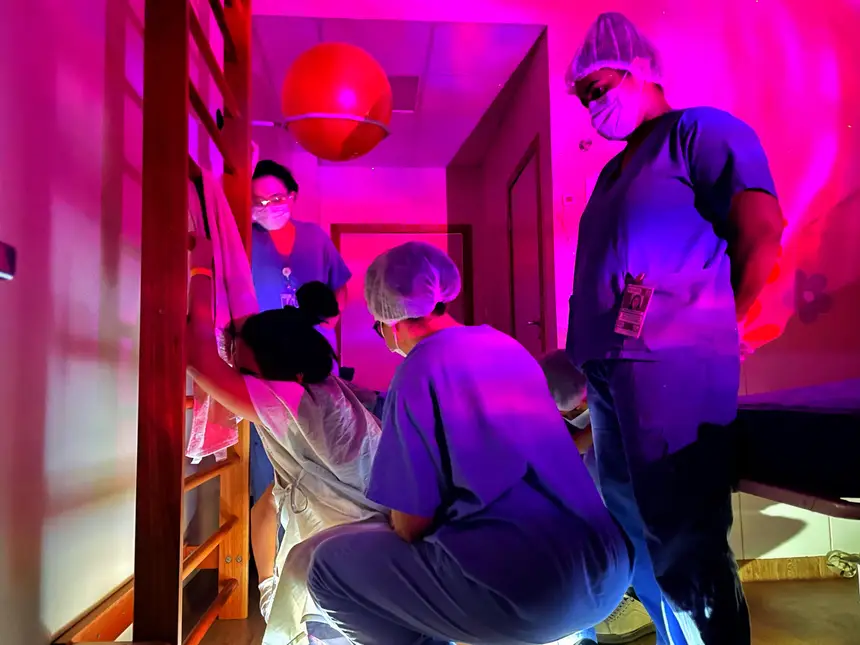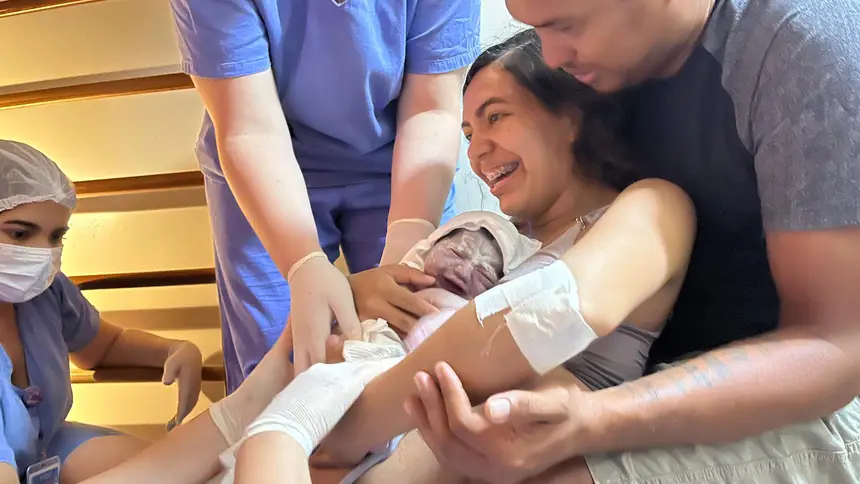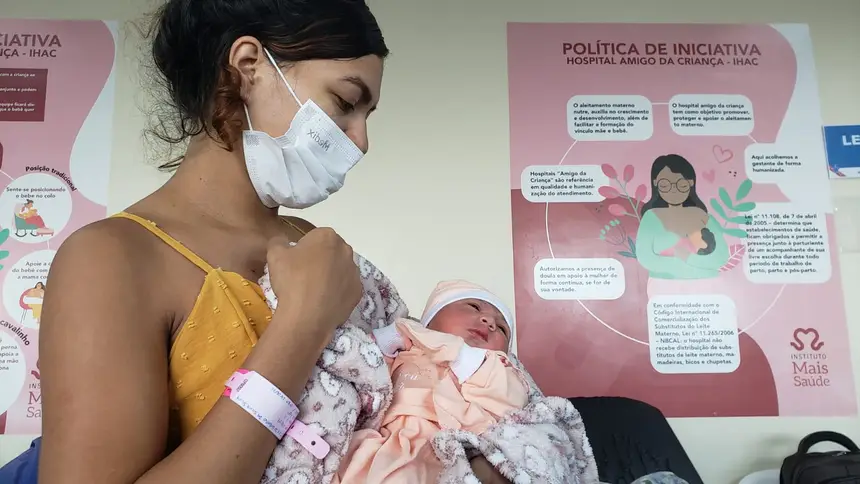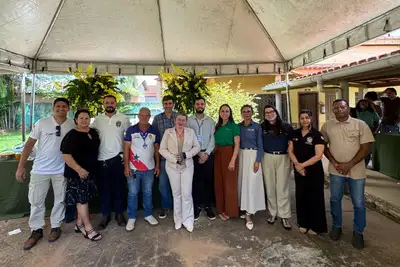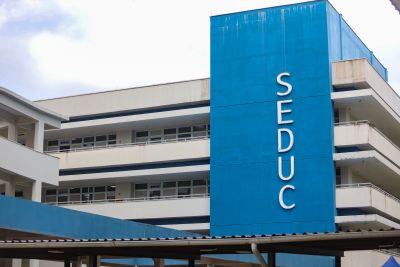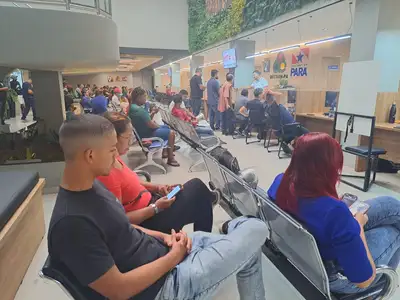Government of Pará expands humanized care in public maternity hospitals
Focusing on the well-being of pregnant women, the state government invests in practices such as aromatherapy, music therapy, and hydrotherapy to make childbirth more welcoming for mothers and babies
With public health as a commitment to the population, the Government of Pará delivers quality and efficient services throughout the Pará territory. In the area of maternity hospitals, it is no different. The state management ensures humanized practices by applying non-pharmacological techniques, through integrative therapies that contribute to a more welcoming environment in hospitals at the time of the baby's arrival, providing various benefits to both mother and child.
According to Thalita Beltrão, the coordinator of the obstetric complex at HRAS (Dr. Abelardo Santos Regional Hospital, located in Icoaraci, a district of Belém), integrative therapies are strong allies in normal labor, promoting physical, emotional, and even spiritual well-being for the parturients.
"They are recognized by the Ministry of Health as part of the Integrative and Complementary Health Practices (PICS). This approach of offering non-pharmacological methods for pain relief strengthens women's autonomy and contributes to a more humanized and welcoming childbirth," emphasizes Thalita Beltrão, who is an obstetric nurse.
Among the techniques, aromatherapy stands out, which aids in relaxation and anxiety control; music therapy that creates a calmer and more affectionate sound environment; physiotherapy and body techniques that favor pelvic mobility and pain relief; conscious breathing techniques that help in pain control and concentration; and hydrotherapy, which provides relief from muscle tension and improves circulation.
Integrated assistance - These therapies are offered to our patients with the aim of welcoming women in a holistic manner, respecting their time, choices, and their protagonism in the process of childbirth and birth. All of this is aligned with good humanization practices, which value the unique experience of birth and ensure that the woman and baby have a safer, more respectful, welcoming, and quality care environment," adds Thalita Beltrão.
Letícia Silva, 26 years old, a first-time mother, is grateful for the care received at HRAS. The experience of the resident of the Pratinha neighborhood in Belém included all the tools of humanization, from breathing techniques to relaxation in hydrotherapy.
"My experience in my first pregnancy was very good, I was not traumatized, thanks to the support of a prepared team. All the support offered by the hospital made me not feel pain before the birth of my daughter, so much so that I did not feel it during contractions, only, of course, during the delivery, which is inevitable," recalls Letícia Silva.
Therapies help reduce pain and increase comfort in the childbirth process
For Letícia Silva to have a normal and pain-free delivery during contractions, pelvic mobility; exercises with a Swiss ball and breathing exercises; positions of four supports (leaning on hands and knees, with the body parallel to the ground); lateral decubitus (lying on the side); and walking were also fundamental in the pre-labor work that resulted in the successful and calm birth of little Esther.
"This process guarantees a reduction in the duration of labor, which, according to scientific studies, can decrease by up to three hours from what was expected. Furthermore, there is a decrease in the perception and level of pain when receiving massages, auriculotherapy, and warm water baths in the tub. By offering this support to mothers, they feel more confident and capable of going through the process in a lighter way. Especially when it is the first pregnancy. The multidisciplinary team acts to reassure them about the process," says physiotherapist Aline Torres.
HRAS strengthens its initiative policy to obtain the "Baby-Friendly Hospital" seal, known by the acronym IHAC, an important recognition for hospital units that certifies the institution's commitment to quality care, welcoming mothers and babies.
The unit meets all the criteria for obtaining the seal, including Federal Law No. 11,108, of April 7, 2005, which mandates institutions, within the scope of the Unified Health System (SUS), to allow the presence of a companion of the mother's choice alongside the parturient, especially encouraging the father's presence during the pre-labor, delivery, and postpartum (PPP) period.
Family bond - Upholding the prerogative and with the encouragement of HRAS, Elton Cristiano, 31 years old, was part of the process alongside his wife for the arrival of the newest member of the Silva family, Esther. For the father, the support network offered by HRAS strengthens the family bond.
"The experience of being part of the process of my daughter's birth was incredible. Seeing Esther being born and soon coming into our arms strengthens the family bond. This first contact I had brings my greatest mission, which is to love and care for her. The father's presence generates confidence and prestige for the mother," he analyzes.
Until the birth of little Esther, HRAS performed 1,004 normal deliveries in the first half of 2025; and 1,171 cesarean deliveries were conducted in the same period.
Structure - The unit operates 24 hours a day equipped with five PPP (pre-labor, delivery, and postpartum) rooms, and is a reference in care for women and children with a focus on four pediatric fronts: emergency, surgery, clinical hospitalization, and Intensive Care Unit (ICU), in addition to welcoming in Intermediate Care Units (ICU).
HRAS has 20 Intensive Care Unit (ICU) beds and 10 neonatal Intermediate Care Unit (ICU) beds, in addition to another 10 beds designated for the kangaroo method.
Text: Pallmer Barros - Ascom/HRAS


